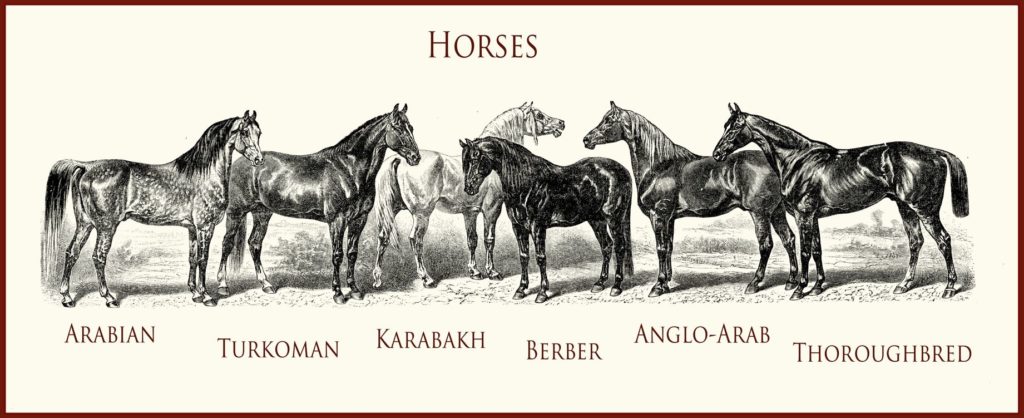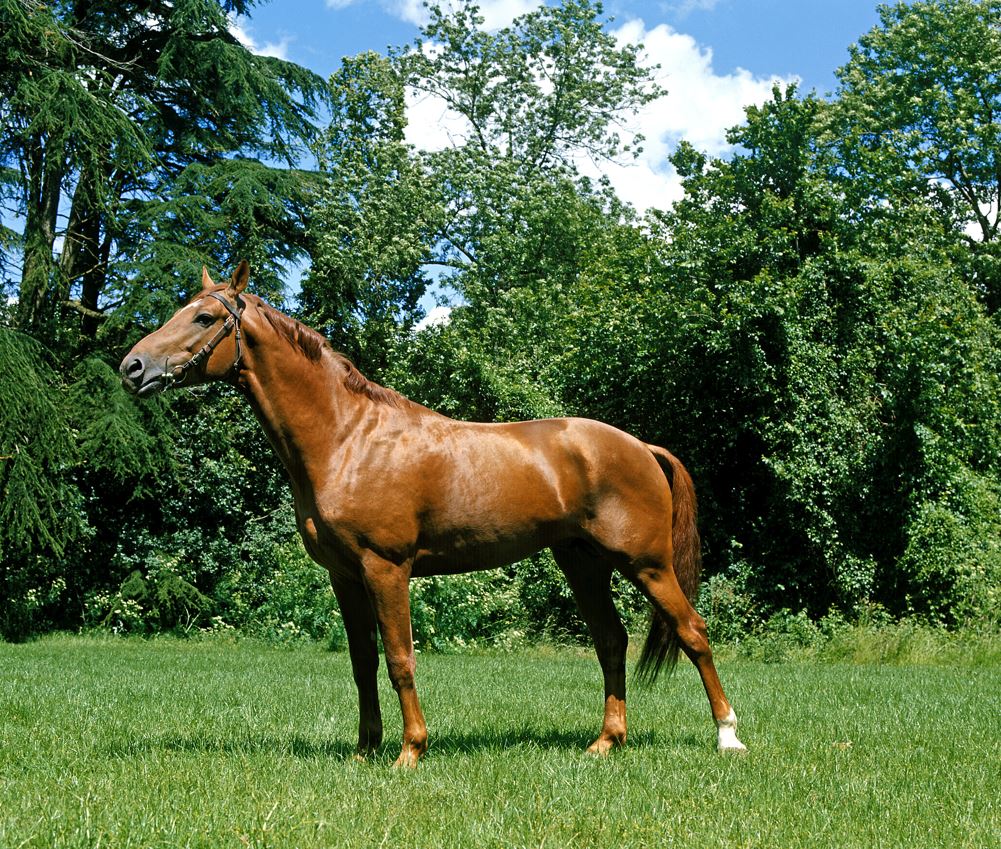Where do English thoroughbreds come from? Since ancient times, various human groups have tried to select the qualities they wanted in horses. From Tarpan, one of the equids that populated the Orient, came the first and most important of all horse breeds: the Arabian thoroughbred, a mount characterized by frugality, endurance, speed and fascinating beauty.
In North Africa, from local horses that managed to survive the last ice ages, the Barbary horse was created, a horse that, like the Arabian, has influenced the formation of many equine breeds existing today. One of the first to be influenced by the Barbary horse is perhaps the Spanish horse, which is descended from the crossing of North African horses with local mares of the Iberian Peninsula.
The fascination with horses also reached England, whose kings, from the sixteenth century, began to select horses of great speed to participate in races. To do this, they added to the blood of their local mares the blood of females of other breeds, such as the Barbary or the Spanish.
After two centuries of experimenting with the local stable, British breeders turned to the horses that English travelers had encountered on their journeys to the Orient in the late 17th and early 18th centuries, namely the fast and hardy Arabian horses. Three of these stallions gave birth to the whole of the future English thoroughbred breeding: Byerley Turk, from whom the legendary Eclipse branch was born; Darley Arabian, who was the father of the first great racehorse, Flying Childers, and Godolphin Arabian, ancestor of the famous Matchem… and of Eclipse.
THE ENGLISH THOROUGHBRED HORSE, THE ECLIPSE, THE INVINCIBLE!

In a firmament full of stars, perhaps the most refulgent is Eclipse, a horse that was born in the spring of 1764 in the Duke of Cumberland’s stable during a solar eclipse, hence his name. He was a son of Spiletta and – according to the General Stud Book – of Marske, although it is not clear which horse was his sire because, inadvertently, the mare was also covered by the stallion Shakespeare. When her breeder died, her new owner, William Wildman, had problems with the indomitable colt. So, after selling half of the horse to Colonel O’Kelly, the latter entrusted his training to a renowned Irish trainer, Sullivan, who succeeded in making him a winner, invincible in the race. The champion, eventually owned exclusively by O’Kelly, was eventually transfigured into a living legend who would leave countless champions in his wake.
ECLIPSE WAS A SON OF THE MARE SPILETTA AND THE STALLION MARSKE, ALTHOUGH HIS PATERNITY IS DISPUTED BECAUSE, INADVERTENTLY, THE FEMALE WAS ALSO RIDDEN BY SHAKESPEARE.
Strangely enough, such a fast horse almost closed the racetrack, because no one was betting on his rivals. Some even thought of finishing with this chestnut projectile, which, according to the data of the time, could reach 90 kilometers per hour. It seems that the high performance of this equine athlete was based on a big heart and strong lungs. After winning all the races in which he participated, and overwhelmed by threats, his owner devoted him to the work of the stud farm, multiplying the profits that the steed had brought him.
Among his many descendants, there were more than three hundred descendants, who are known to have won some of the races in which they participated. In addition to his presumptuous power and legendary speed, Eclipse passed on to his many descendants his strong temperament, inherited from his maternal great-grandfather, Godolphin Arabian, who, like Alexander the Great’s Mount Bucephalus, was ridden only by his beloved rider, a young Arab named Agba.
Today, English thoroughbreds, descendants of the most famous of all racehorses, are the most sought-after breed in the world, capable of carrying heavy weights over long distances. They are surrounded by a thriving industry, supported by both breeding and competition. Possessing great physical and mental energy, many believe that some horses can show a nervous and difficult character, making them suitable only for very specialized riders.
A LEGENDARY HORSE
Eclipse was born in 1764 in the Duke of Cumberland’s stable. After taming the indomitable character of the colt, Colonel O’Kelly made him an invincible winner in the race. He won every race he entered and was retired by his owner to stud. In the photo, the oil painting by George Stubbs shows Eclipse with William Wildman, who acquired the horse from the Duke of Cumberland’s family, and his two sons.



